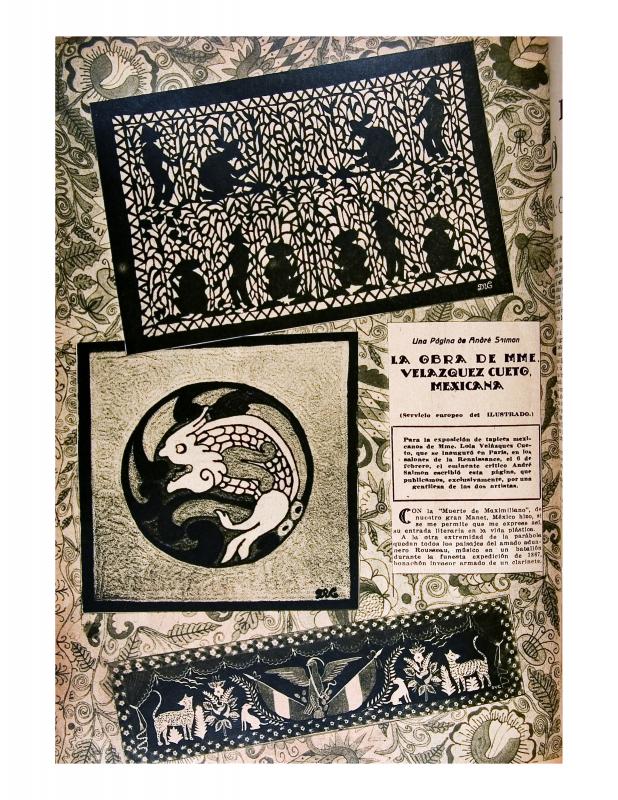André Salmon (1881–1969) was a French poet and art critic, a close friend of Pablo Picasso (1881–1973), Guillaume Apollinaire (1880-1918), and Max Jacob (1876–1944), with whom he founded the magazine Le festin d’Esope [Aesop’s Feast]. He is known to some extent for having helped Picasso name his painting Les demoiselles d’Avignon [The Young Ladies of Avignon]. This review was published in a Spanish translation in El Universal Ilustrado, but Salmon originally wrote it in French as the prologue for the exhibition Des tapisseries mexicaines de Lola Velaszquez Cueto [sic] [The Mexican Tapestries of Lola Velásquez Cueto] in Paris, Salle de la Renaissence, February 6–19, 1929. An incomplete version of this same essay was published in the French newspaper La Comédie on Tuesday, February 12, 1929. (With regard to the Spanish version of the review, see doc. no. 800967.) This review is important because it documents the close relationship between members of the European avant-garde and many other trends and opinions, such as those of the Latin Americans. In this case, Lola [Velázquez] Cueto (1897–1978) created tapestries based on forms drawn from the pre-Hispanic world, clearly influenced by nationalist themes, as well as on reinterpretations of stained glass windows at the cathedral at Chartres in France. Her work also included references to paintings by Diego Rivera (1886–1957), Téodore Rousseau (1887–1910), and Jean Charlot (1898–1979), which defined her less as a “copyist” and more as a re-interpreter of the works of these artists, using a technique that was almost exclusively hers. Salmon also wrote and signed—but did not date—a letter to Lola Cueto in which he expressed his admiration and profound respect for her work. It is significant that a critic of his stature, who was such a staunch defender of Cubism, should have acknowledged Lola’s tapestries and praised the honesty and simplicity of an artist who was so committed to her time and her country.

